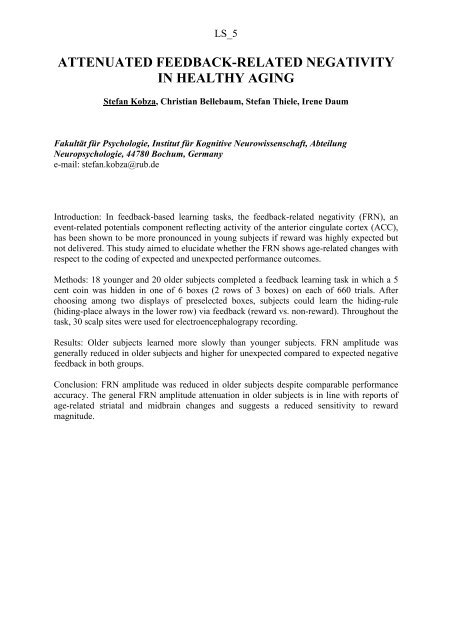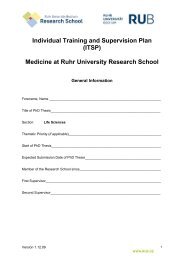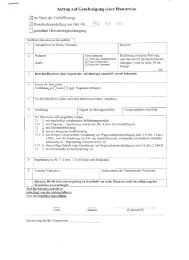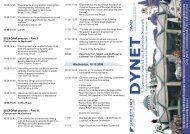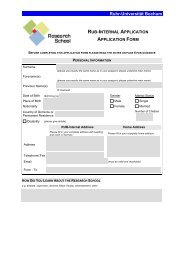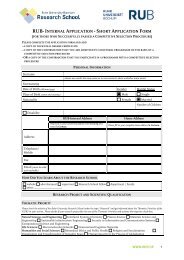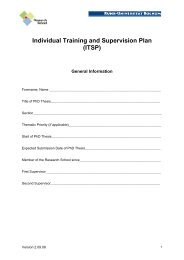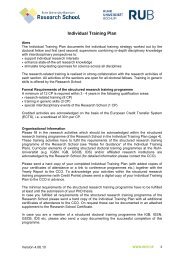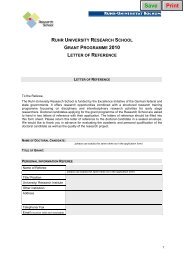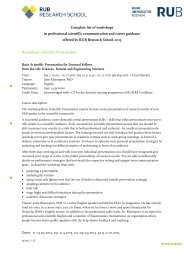Section Days abstract book 2010.indd - RUB Research School ...
Section Days abstract book 2010.indd - RUB Research School ...
Section Days abstract book 2010.indd - RUB Research School ...
Create successful ePaper yourself
Turn your PDF publications into a flip-book with our unique Google optimized e-Paper software.
LS_5<br />
ATTENUATED FEEDBACK-RELATED NEGATIVITY<br />
IN HEALTHY AGING<br />
Stefan Kobza, Christian Bellebaum, Stefan Thiele, Irene Daum<br />
Fakultät für Psychologie, Institut für Kognitive Neurowissenschaft, Abteilung<br />
Neuropsychologie, 44780 Bochum, Germany<br />
e-mail: stefan.kobza@rub.de<br />
Introduction: In feedback-based learning tasks, the feedback-related negativity (FRN), an<br />
event-related potentials component reflecting activity of the anterior cingulate cortex (ACC),<br />
has been shown to be more pronounced in young subjects if reward was highly expected but<br />
not delivered. This study aimed to elucidate whether the FRN shows age-related changes with<br />
respect to the coding of expected and unexpected performance outcomes.<br />
Methods: 18 younger and 20 older subjects completed a feedback learning task in which a 5<br />
cent coin was hidden in one of 6 boxes (2 rows of 3 boxes) on each of 660 trials. After<br />
choosing among two displays of preselected boxes, subjects could learn the hiding-rule<br />
(hiding-place always in the lower row) via feedback (reward vs. non-reward). Throughout the<br />
task, 30 scalp sites were used for electroencephalograpy recording.<br />
Results: Older subjects learned more slowly than younger subjects. FRN amplitude was<br />
generally reduced in older subjects and higher for unexpected compared to expected negative<br />
feedback in both groups.<br />
Conclusion: FRN amplitude was reduced in older subjects despite comparable performance<br />
accuracy. The general FRN amplitude attenuation in older subjects is in line with reports of<br />
age-related striatal and midbrain changes and suggests a reduced sensitivity to reward<br />
magnitude.


